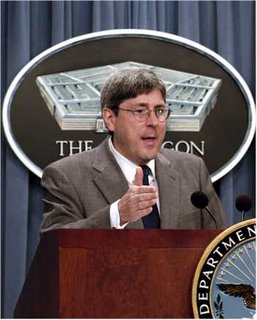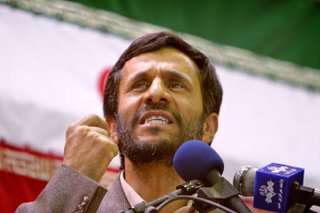Congratulations to Mr. Kalum Tuggle for correctly naming "Dreadful Selfish Crime" by Robert Earl Keen as the Sunday Song of the Day. I should have known that out of all the potential blog readers out there, Kalum would have been the one to nail the first REK lyrics.
I know that I have mentioned from time to time that I wanted to talk about my thoughts regarding
The Assassins' Gate. If anything, reading Packer's work was made even more difficult this past weekend when I spoke with Blake McGee. Blake and I grew up in the youth group together and after graduating from high school he joined the Marines. He was wounded twice during his service in Iraq and returned home to Tyler this weekend.
I cannot even imagine how unsettling it must be to make the transition from combat to anything else. To Blake, it must seem that everything here is running in slow-motion, as if the world has been muted, and no one here knows what he has seen on the other side of the world. That type of dichotomy is discussed throughout
The Assassins' Gate and seems to be one of the leading causes of the problems that threaten to rip Iraq apart to this day.

In my mind, one of the most troubling aspects of the entire conflict is not focused on the discussion regarding weapons of mass destruction or connections with Al Qaeda. It has to do with the fact that we undertook the reconstruction of a country that had existed as police-state for 35 years seemingly on the fly. The evidence of statements from figures such as Donald Rumsfeld and Douglas Feith that the U.S. Government expected that we would be in Iraq for only 3 months after the invasion and then control would be passed to the Iraqi people is troubling to say the least.

One of the most difficult truths to learn about life is that human beings are capable of inflicting terrible damage on each other. When one man took control of the country of Iraq for over three decades and imposed his cruel will on all of those who dared to defy him, those negative effects cannot be undone in 3 months.
For the United States to believe that we could enter a nation in the volatile Middle East, upend all of that country's governing structures and power sources, and then leave that country within 3 months in the hands of people who knew nothing of living as free members of democracy, is a an act of supreme hubris.
Please do not read that I do not think that early Iraqi control or participation in the process of nation-building was not vital, but it seems that we confused the idea of the Iraqi people's desire for a democratic state with their ability to create such a democratic state in an extremely limited period of time.
It has become the vogue point of view to suggest that there is nothing that could have been done to avoid the situation that now exists in Iraq, but I do not believe that to be true.

"The deadly chaos that followed the American invasion of Iraq is a story of abstract terms and concrete realities. Between them lies a distance even greater than the eight thousand miles from Washington to Baghdad, yet the ideas of the war's architects produced consequences as tangible as gutted offices and homemade bombs. Those consequences must be understood above all in the lives of human beings, Iraqis and Americans, thrown together by the fierce history of a war."
It seems that learning to establish a connection with the realities that existed within the nation of Iraq at the time of our invasion in April 2003 and the hypothetical nature of our planning on how to go about reconstructing the country would have gone a long way towards creating a different situation than the one that we find ourselves in.







































